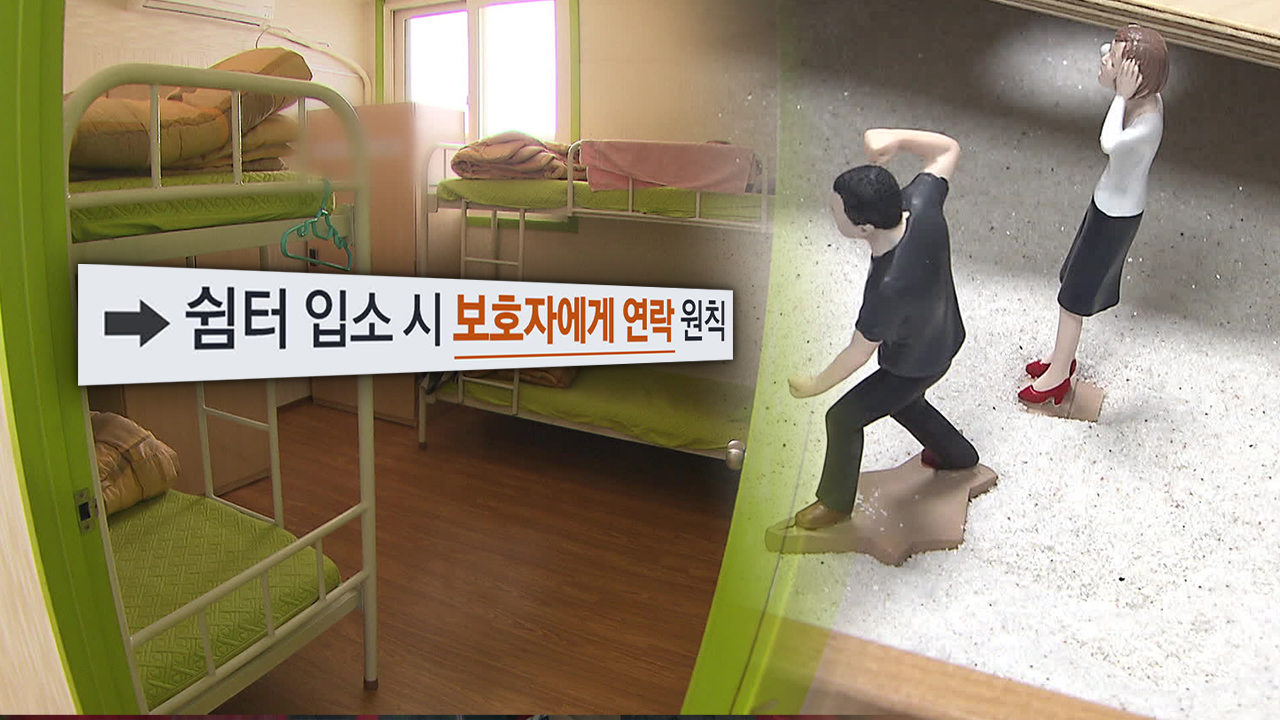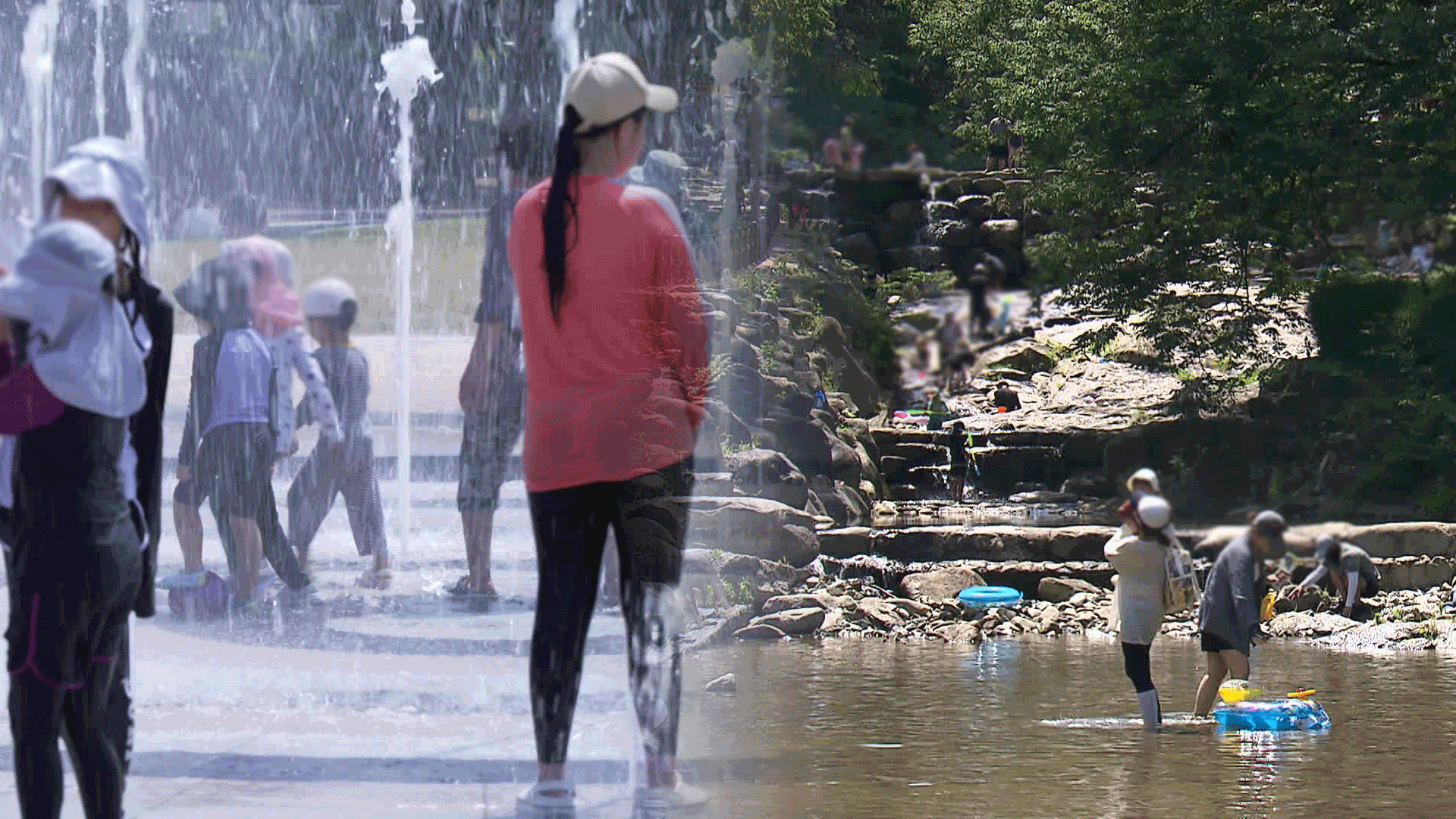Runaway youth hesitant to use shelters due to parental contact
입력 2024.10.21 (23:55)
읽어주기 기능은 크롬기반의
브라우저에서만 사용하실 수 있습니다.
[Anchor]
There are 'youth shelters' that protect 'out-of-home youth' who have left their homes due to family issues from becoming targets of crime.
However, it is not uncommon for these youths to visit the shelter and ultimately turn away.
Reporter Moon Ye-seul investigated what the problem is.
[Report]
Online, there are frequent posts written by 'out-of-home youth' who have left home and have nowhere to go.
To avoid falling into the depths of crimes such as drug use and prostitution, protection from facilities like 'youth shelters' is necessary, but the individuals themselves tend to be reluctant to use them.
This is because the shelter must contact the parents to inform them of the child's protection, which is more frightening for them.
[Out-of-home youth/17 years old/voice altered: "Just a little mistake here can lead to the fear of being sent back to my parents. Because of that..."]
According to the so-called 'residence designation right' established in the Civil Code in 1958, 'children must reside in a place designated by their guardians.'
As a result, when a youth enters a shelter, it is generally required to contact the guardian.
[Kim Hyo-jung/Secretary General of the Korean Youth Shelter Association: "(When they find out that their parents will be contacted) they often refuse to enter midway or turn away from entering the shelter from the beginning."]
In some cases, contact can be delayed for up to 72 hours, but without legal amendments, fundamental solutions are difficult.
Therefore, measures to exempt youth shelters from the 'guardian contact obligation' are being discussed as alternatives.
[Heo Min-sook/Legislative Researcher at the National Assembly: "Time is needed. Youths should be able to share their stories with someone and then make decisions after obtaining predictable information about what will happen to them in the future..."]
Additionally, there are suggestions to grant youths aged 16 and older the authority to decide on entering the shelter and to assist them in preparing for family reunification or independence.
This is KBS News, Moon Ye-seul.
There are 'youth shelters' that protect 'out-of-home youth' who have left their homes due to family issues from becoming targets of crime.
However, it is not uncommon for these youths to visit the shelter and ultimately turn away.
Reporter Moon Ye-seul investigated what the problem is.
[Report]
Online, there are frequent posts written by 'out-of-home youth' who have left home and have nowhere to go.
To avoid falling into the depths of crimes such as drug use and prostitution, protection from facilities like 'youth shelters' is necessary, but the individuals themselves tend to be reluctant to use them.
This is because the shelter must contact the parents to inform them of the child's protection, which is more frightening for them.
[Out-of-home youth/17 years old/voice altered: "Just a little mistake here can lead to the fear of being sent back to my parents. Because of that..."]
According to the so-called 'residence designation right' established in the Civil Code in 1958, 'children must reside in a place designated by their guardians.'
As a result, when a youth enters a shelter, it is generally required to contact the guardian.
[Kim Hyo-jung/Secretary General of the Korean Youth Shelter Association: "(When they find out that their parents will be contacted) they often refuse to enter midway or turn away from entering the shelter from the beginning."]
In some cases, contact can be delayed for up to 72 hours, but without legal amendments, fundamental solutions are difficult.
Therefore, measures to exempt youth shelters from the 'guardian contact obligation' are being discussed as alternatives.
[Heo Min-sook/Legislative Researcher at the National Assembly: "Time is needed. Youths should be able to share their stories with someone and then make decisions after obtaining predictable information about what will happen to them in the future..."]
Additionally, there are suggestions to grant youths aged 16 and older the authority to decide on entering the shelter and to assist them in preparing for family reunification or independence.
This is KBS News, Moon Ye-seul.
■ 제보하기
▷ 카카오톡 : 'KBS제보' 검색, 채널 추가
▷ 전화 : 02-781-1234, 4444
▷ 이메일 : kbs1234@kbs.co.kr
▷ 유튜브, 네이버, 카카오에서도 KBS뉴스를 구독해주세요!
- Runaway youth hesitant to use shelters due to parental contact
-
- 입력 2024-10-21 23:55:36

[Anchor]
There are 'youth shelters' that protect 'out-of-home youth' who have left their homes due to family issues from becoming targets of crime.
However, it is not uncommon for these youths to visit the shelter and ultimately turn away.
Reporter Moon Ye-seul investigated what the problem is.
[Report]
Online, there are frequent posts written by 'out-of-home youth' who have left home and have nowhere to go.
To avoid falling into the depths of crimes such as drug use and prostitution, protection from facilities like 'youth shelters' is necessary, but the individuals themselves tend to be reluctant to use them.
This is because the shelter must contact the parents to inform them of the child's protection, which is more frightening for them.
[Out-of-home youth/17 years old/voice altered: "Just a little mistake here can lead to the fear of being sent back to my parents. Because of that..."]
According to the so-called 'residence designation right' established in the Civil Code in 1958, 'children must reside in a place designated by their guardians.'
As a result, when a youth enters a shelter, it is generally required to contact the guardian.
[Kim Hyo-jung/Secretary General of the Korean Youth Shelter Association: "(When they find out that their parents will be contacted) they often refuse to enter midway or turn away from entering the shelter from the beginning."]
In some cases, contact can be delayed for up to 72 hours, but without legal amendments, fundamental solutions are difficult.
Therefore, measures to exempt youth shelters from the 'guardian contact obligation' are being discussed as alternatives.
[Heo Min-sook/Legislative Researcher at the National Assembly: "Time is needed. Youths should be able to share their stories with someone and then make decisions after obtaining predictable information about what will happen to them in the future..."]
Additionally, there are suggestions to grant youths aged 16 and older the authority to decide on entering the shelter and to assist them in preparing for family reunification or independence.
This is KBS News, Moon Ye-seul.
There are 'youth shelters' that protect 'out-of-home youth' who have left their homes due to family issues from becoming targets of crime.
However, it is not uncommon for these youths to visit the shelter and ultimately turn away.
Reporter Moon Ye-seul investigated what the problem is.
[Report]
Online, there are frequent posts written by 'out-of-home youth' who have left home and have nowhere to go.
To avoid falling into the depths of crimes such as drug use and prostitution, protection from facilities like 'youth shelters' is necessary, but the individuals themselves tend to be reluctant to use them.
This is because the shelter must contact the parents to inform them of the child's protection, which is more frightening for them.
[Out-of-home youth/17 years old/voice altered: "Just a little mistake here can lead to the fear of being sent back to my parents. Because of that..."]
According to the so-called 'residence designation right' established in the Civil Code in 1958, 'children must reside in a place designated by their guardians.'
As a result, when a youth enters a shelter, it is generally required to contact the guardian.
[Kim Hyo-jung/Secretary General of the Korean Youth Shelter Association: "(When they find out that their parents will be contacted) they often refuse to enter midway or turn away from entering the shelter from the beginning."]
In some cases, contact can be delayed for up to 72 hours, but without legal amendments, fundamental solutions are difficult.
Therefore, measures to exempt youth shelters from the 'guardian contact obligation' are being discussed as alternatives.
[Heo Min-sook/Legislative Researcher at the National Assembly: "Time is needed. Youths should be able to share their stories with someone and then make decisions after obtaining predictable information about what will happen to them in the future..."]
Additionally, there are suggestions to grant youths aged 16 and older the authority to decide on entering the shelter and to assist them in preparing for family reunification or independence.
This is KBS News, Moon Ye-seul.
-
-

문예슬 기자 moonster@kbs.co.kr
문예슬 기자의 기사 모음
-
이 기사가 좋으셨다면
-
좋아요
0
-
응원해요
0
-
후속 원해요
0















이 기사에 대한 의견을 남겨주세요.